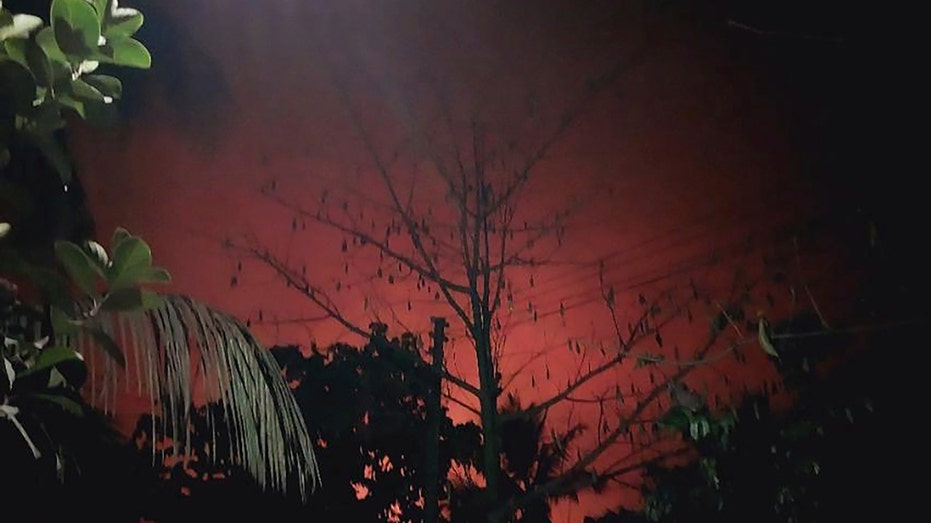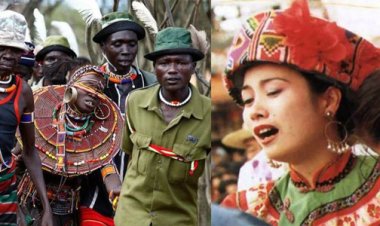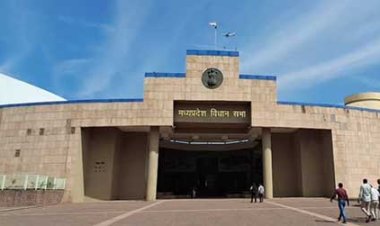The Burmese government disputes reports that it killed 76 villagers.
A spokesperson for Burma's military junta has denied rebel claims that army troops and allied forces killed 76 villagers in Rakhine state last week.

Assertions that army personnel and their local supporters killed 76 people when they entered a village last week in the western province of Rakhine were refuted by a spokesman for Burma's military government, according to state-controlled media on Wednesday.
Burma's national civil war has turned Rakhine into a battleground between armed forces of ethnic minorities and pro-democracy rebels against the military regime that seized power in 2021 after overthrowing Aung San Suu Kyi's elected government.
Fears of a resurgence of organized violence against the Muslim Rohingya minority, which forced at least 740,000 of their people to escape to neighboring Bangladesh in 2017 for safety, have also been stoked by the conflict there.
The accusations of a massacre in Byine Phyu village in northern Rakhine were made by the Arakan Army, an ethnic armed organization that has been on the offensive against army outposts in Rakhine since November last year. They have gained control of nine of 17 townships in Rakhine and one in the adjacent Chin state.
Byine Phyu village is on the outskirts of Sittwe, the capital of Rakhine, in a strategic location with easy access to the Bay of Bengal.
The Arakan Army is the well-trained and well-armed military wing of the political movement of the Buddhist Rakhine minority, which seeks autonomy from Burma's central government.
However, it has also been accused of major human rights violations, most notably in connection with its capture of the town of Buthidaung on May 18. It was accused of forcing the town’s estimated 200,000 residents, mostly from the Rohinyga ethnic minority, to leave and then setting fire to most of the buildings there.
It denies the charges, blaming the army for burning the town, but residents interviewed by phone since the incident told The Associated Press that the Arakan Army was responsible.
The competing claims could not be verified independently, as tight restrictions on travel in that region make it virtually impossible to verify details of such incidents firsthand.
Details of the incident in Byine Phyu village were similarly disputed.
Maj. Gen. Zaw Min Tun, the spokesperson for the ruling military council, was quoted Wednesday in the state-run Myanma Alinn newspaper as saying the army’s troops went to the village on May 29 to look for members of the Arakan Army and detained about 20 people for interrogation.
He said the security forces were forced to shoot three male suspects who were not village residents as they tried to seize a gun from an army officer, but there had not been any mass killing.
An Arakan Army statement released Tuesday said about 170 soldiers from the military regional command headquarters based in Sittwe, accompanied by armed members of a pro-army Rakhine group and local Muslims recruited by the army, arrested everyone in Byine Phyu village and killed 76 people.
It claimed the army raiders treated their captives brutally and raped three women.
Only one of 20 residents from the area contacted by AP was willing to speak about the incident. Several said they would not talk because they were concerned about friends of family members who had been taken into custody.
One woman said her younger brother was among those arrested, but she did not know how many people had been killed or even if her brother was still alive. She spoke on condition on anonymity to safeguard her personal security.
The U.N. human rights office on May 24 warned of "frightening and disturbing reports" about the impact of new violence in Burma's western state of Rakhine, pointing to new attacks on Rohingya civilians by the military and an ethnic armed group fighting against it.
The fighting in Rakhine has evoked particular concern because it suggests that the Rohingya minority may face new violent persecution.
The Rohingya were the targets of a brutal counterinsurgency campaign incorporating rape and murder that saw an estimated 740,000 flee to neighboring Bangladesh as their villages were burned down by government troops in 2017.
They have lived in Burma for generations, but they are widely regarded by many in the country’s Buddhist majority, including especially members of the Rakhine minority, as having illegally migrated from Bangladesh. The Rohingya face a great amount of prejudice and are generally denied citizenship and other basic rights.
After the Arakan Army captured Buthidaung on May 18, Rohingya activists accused it of burning down the houses in the town and forcing its residents to flee. The Arakan Army rejected the allegations as baseless and blamed the destruction on the military government’s troops and local Muslims it said were fighting alongside them.






















